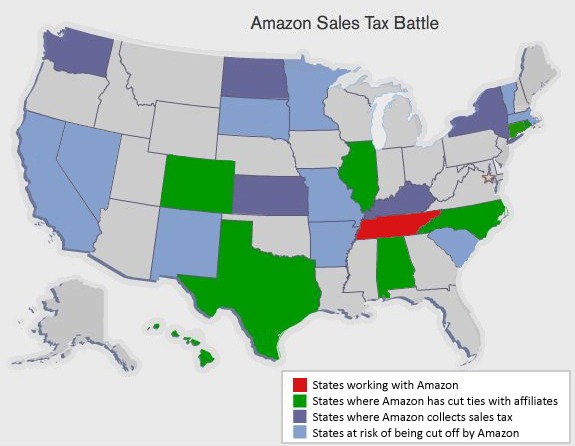Online shoppers will soon be shelling out more money for their purchases now that the US Supreme Court ruled that states can demand e-businesses collect sales taxes.
The case, which will have a profound effect on the consumer economy, saw the country’s Supreme Court justices voting 5 to 4 that states have the right to impose taxes on online sales even if the retailer does not have a warehouse or a physical store in their jurisdiction.
Supreme Court rules that states can collect internet sales tax on online retail purchases https://t.co/Gh9TzGpEBd pic.twitter.com/u75WAu3MWy
— The Verge (@verge) June 21, 2018
Brick-and-mortar shops have been blaming online stores and the apparent tax break they enjoy for slow sales. Meanwhile, eCommerce businesses have claimed that their success was because of the convenience they offer, not the sales tax (or lack thereof).
Doing Away with Years Worth of Laws
The surprising ruling ended years of legislative battles as it overturned a 1992 decision. It also answered the question of whether the law had fallen behind the digital economy. According to the Supreme Court ruling, the requirement that sales taxes are bound to retailers with a “physical presence” in a state was “unsound” and outdated.
South Dakota is a clear winner in this ruling. The state had petitioned the court to uphold recently passed legislation imposing a sales tax on online retailers. Marty Jackley, the state’s attorney general, defended the law by claiming that South Dakota was “losing millions for education, healthcare and infrastructure” and that the unfair playing field was hurting its citizens.
The ongoing issue that eCommerce businesses had an unfair advantage over brick-and-mortar shops was pushed to the forefront again when President Donald Trump tweeted in April that online retail giant Amazon was paying “little or no taxes to state & local governments.” It should be pointed out, though, that Amazon has been collecting sales taxes from customers in 45 states since April 2017.
Impact of Supreme Court Ruling on eCommerce
The decision to levy sales tax on online retailers had traditional retailers celebrating while the stocks of ecommerce companies took a dive.
Wayfair, an online furnishings retailer, saw its shares drop 3.8 percent while Overstock.com and eBay fell 2.5 percent and 2 percent respectively.
Amazon’s shares also took a hit, going down 1 percent. However, the retail giant’s situation is more complicated. While the company enjoyed the tax exemption for several years, a policy change in 2012 has seen it collecting tax on its own sales in the District of Columbia and 45 other states. But its third-party sellers haven’t been required to do so and thus will feel the impact of the court’s decision.
President Trump has declared the Supreme Court ruling as a “big victory for fairness” in the US and a “great victory for consumers and retailers.” However, consumers would be paying more once this ruling is implemented.
Big Supreme Court win on internet sales tax – about time! Big victory for fairness and for our country. Great victory for consumers and retailers.
— Donald J. Trump (@realDonaldTrump) June 21, 2018
There’s no telling yet how the new ruling will affect the retail landscape as this will largely depend on how states choose to exercise their authority regarding online sales. Some experts have noted that the emphasis placed by the justices on South Dakota’s law provides small online businesses with some protection as only sellers that engage in transactions of 200 or more or those that deliver goods worth more than $100,000 will be taxed.
However, the numbers could vary as $100,000 can be considered quite low from a company income tax perspective. But it’s safe to say that states will try to implement these tax sales, whether via existing or new legislation.
[Featured image via Pexels.com]




